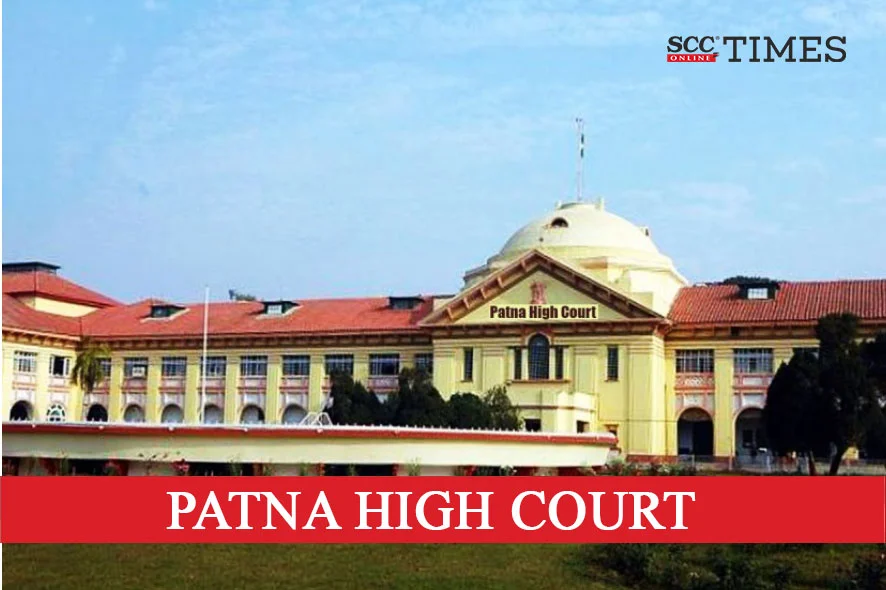Patna High Court: The present writ petition was filed seeking issuance of writ of mandamus and other appropriate writ(s), order(s) or direction(s) declaring that part of Section 10(10-AA) of the Income Tax Act, 1961 (‘ITA’) by operation of which a cap was placed on exemption from income tax from the leave encashment amount at the time of retirement of the employees other than the government employees, as ultra vires to the Constitution.
The Division Bench of K. Vinod Chandran, C.J., and Rajiv Roy, J.*, opined that the differentiation made by the State between the employees of the Central and State Governments on the one hand and the other employees on the other in Section 10(10-AA) of ITA was neither discriminating nor violative of the Article 14 of the Constitution. The Court dismissed the writ petition and held that petitioner, a retired employee of SBI, could not claim parity with the employees of the Central and State Government and therefore, the deductions made could not be interfered with.
Background
Petitioner joined SBI in 1981 and retired on 31-08-2017, but before his retirement, he filed a petition submitting that once retired, he was entitled to Rs 6,70,000 but after deduction of income tax, he would be getting only Rs 4,70,000 approximately as rest of the amount would be liable to tax. He also submitted that had he been in the State or Central Government Services, no deduction on account of income tax would have been made from the leave salary payable to him at the time of his retirement and he would have been entitled to receive the entire sum.
Petitioner submitted that as Section 10(10-AA) of ITA discriminated between the similarly placed group of employees, he would lose so much money. He further submitted that Section 10(10-AA) of ITA did not place any cap on the period of leave and amount of leave salary which would be out of income tax net at the time of retirement in the case of government employees whether they were in Central or State Services, whereas in the case of employees of other establishments, the period of leave was capped at ten months and the maximum amount exempted from income tax was subject to such limit as the Central Government might notify in the Official.
Counsel for petitioner submitted that petitioner was concerned with the cap on maximum amount exempted from tax which adversely affected his interests. It was thus submitted that Section 10(10-AA) that differentiated the tax on the leave encashment between State and Central Government employee’s vis-a-vis others be declared ultra vires.
Analysis, Law, and Decision
The Court noted petitioner’s contention that the employees of the Bank and also the Public Sector Undertakings could not be treated differently holding the equality clause of Article 14 of the Constitution, and opined that “the said contention was unfounded and fit to be rejected as two different set of employees who were not situated equally and formed a different class could not be equated under Article 14 of the Constitution. The distinction made between the Central and State Government employees vis-a-vis others was definitely a reasonable classification.”.
The Court opined that though a taxation law could not claim immunity from the equality clause that finds enshrined in Article 14 of the Constitution and it had to pass the test, this Court was also conscious of the fact that considering the intrinsic complexity of fiscal adjustments of diverse elements, the State had wide discretion in the matter of classification for the taxation purposes.
The Court opined that the legislature must have the freedom to select and classify persons, properties and income which it would tax and/or not tax and thus, the differentiation made by the State between the employees of the Central and State Governments on the one hand and the other employees on the other in Section 10(10-AA) of ITA was neither discriminating nor violative of the Article 14 of the Constitution.
The Court relied on A.K. Bindal v. Union of India, (2003) 5 SCC 163 wherein the Supreme Court held that “identity of government company remained distinct from the government. It was not identified with the Union but was placed under a special system of Centre and conferred certain privileges. Since the employees of government companies were not government servants, they had no right to claim parity”. The Court also relied on S.K. Dutta, ITO v. Lawrence Singh Ingty, (1968) 68 ITR 272 wherein the Supreme Court held that “the State had wide discretion in selecting persons or objects it would tax and that a statute was not open to attack on the ground that it taxed some persons or objects and not others. The State was allowed to prefer and choose districts, objects, persons, methods and even rates of taxation if it did so reasonably.”.
The Court opined that classification made in Section 10(10-AA) of ITA had withstood the judicial scrutiny and there was no need to give a re-look to it. The Court dismissed the writ petition and held that petitioner, a retired employee of SBI, could not claim parity with the employees of the Central and State Government and therefore, the deductions made could not be interfered with.
[Purnendu Shekhar Sinha v. Union of India, 2024 SCC OnLine Pat 516, decided on 26-2-2024]
*Judgment authored by: Justice Rajiv Roy
Advocates who appeared in this case :
For the Petitioner: Kundan Kumar Sinha, Bipin Krishna Singh, Advocates
For the Respondents: K.N. Singh, Senior Advocate & ASG; Archana Sinha, Rakesh Kumar Singh, Advocates








